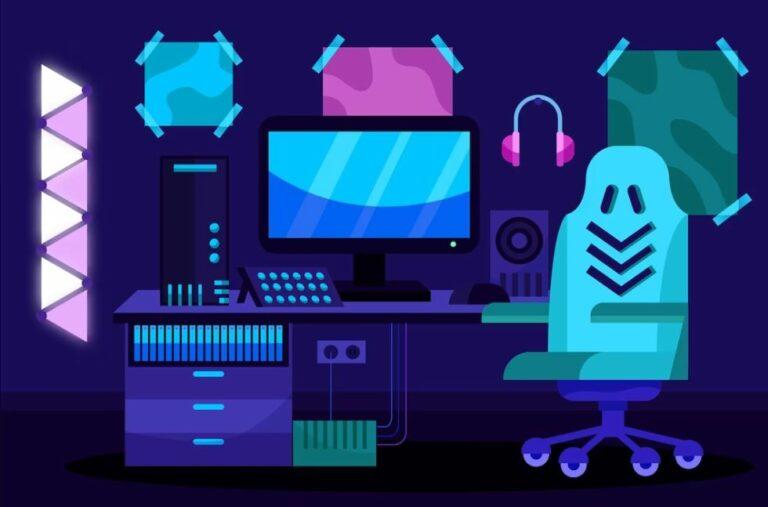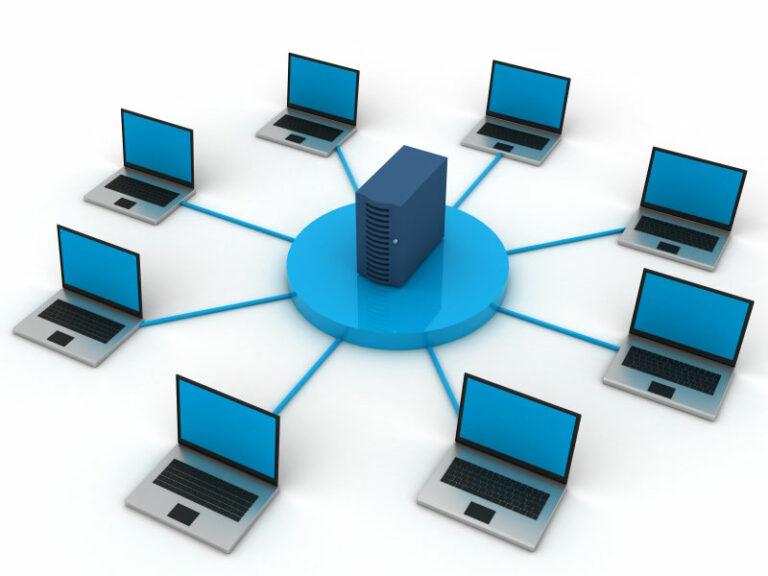In the dynamic world of online gaming, dedicated game servers play a pivotal role in delivering an immersive, uninterrupted gaming experience. This article delves into the intricacies of dedicated game servers, shedding light on their essence, technical components, and the process of setting them up. By exploring the advantages of these servers, we’ll help you understand why they are the backbone of a seamless gaming journey.

What is a dedicated game server?
A dedicated game server is a powerful, remote server that exclusively hosts online games, providing a stable and controlled environment for gamers. Unlike shared hosting solutions, these servers are dedicated solely to gaming, ensuring optimal performance, speed, and reliability. Their core functions include managing game events, processing player actions, and synchronizing data among all connected clients, which is crucial for multiplayer gaming scenarios.
Client-Server vs. Peer-to-Peer Hosting Models
The architecture of online gaming can be broadly categorized into two models: client-server and peer-to-peer (P2P). In the client-server model, a central server hosts the game, offering a more stable and cheat-resistant environment. Conversely, the P2P model relies on players’ devices to host and manage game data, which can lead to inconsistencies and security vulnerabilities. Dedicated game servers epitomize the client-server model, providing a more reliable and secure gaming experience.
How Dedicated Servers Enhance Gaming Experience
Dedicated servers significantly enhance the gaming experience by offering reduced lag, improved game stability, and the ability to handle high volumes of players seamlessly. They can also facilitate a fair playing field by mitigating cheating and providing efficient game data processing. Furthermore, dedicated servers can offer customization options for game modes, maps, and other parameters, allowing for a tailored gaming experience. And for some games it’s not possible to play together with friends if you don’t have dedicated servers.
Technical Components of a Dedicated Game Server
Hardware Requirements for Smooth Operation
The hardware of a dedicated game server is a critical factor in its performance. These servers require powerful processors, high-speed memory, and ample storage space to manage the demands of hosting complex, multiplayer games. Additionally, a robust network interface card (NIC) is essential for handling the high bandwidth required for seamless player connectivity.
Software and Operating Systems for Game Hosting
The choice of software and operating systems is equally important for running a dedicated game server. Linux and Windows Server are the most commonly used OS due to their stability, security, and support for gaming applications. Server administrators can also leverage specialized game server hosting software that simplifies setup, management, and scalability.
Network Infrastructure and Connectivity
A dedicated game server’s performance is heavily dependent on its network infrastructure and internet connectivity. High-quality, low-latency internet connections are vital to minimize game lag and ensure smooth player interactions. Moreover, having a server located geographically close to the player base can significantly reduce latency, further enhancing the gaming experience.
Setting Up Your Own Dedicated Game Server
Embarking on the journey to set up your own dedicated game server can be an exhilarating venture, promising a bespoke gaming experience for you and your community. This section guides you through the preliminary considerations and the steps involved in bringing your server to life.
Choosing Between Home-Based and Managed Server Hosting
Deciding between hosting your dedicated server at home or opting for a managed service hinges on several factors, including technical expertise, budget, and time commitment. Home-based servers offer full control and lower ongoing costs but require significant setup and maintenance effort. Conversely, managed server hosting simplifies the process, providing professional support and robust infrastructure at a higher cost.
Server Setup and Configuration
Setting up a dedicated game server involves several key steps: selecting the right hardware or cloud service, installing the necessary operating system and game server software, and configuring your server settings to suit your game’s requirements. This process also includes optimizing your network settings for optimal performance and securing your server against unauthorized access and attacks.
Maintaining and Monitoring Server Performance
Once your server is up and running, continuous maintenance and monitoring are crucial for ensuring stable performance and a great player experience. This includes regular software updates, performance tuning, and monitoring server load and network latency. Tools and scripts can automate many of these tasks, helping you maintain a high-quality gaming environment with minimal downtime.
Advantages of Using Dedicated Gaming Servers
The shift towards dedicated gaming servers comes with a host of benefits that significantly enhance the online gaming experience. Let’s delve into the core advantages that make them an indispensable asset for gamers and developers alike.
Superior Performance and Reliability
Dedicated game servers offer unmatched performance and reliability, ensuring games run smoothly without lag or interruption. These servers provide the computational power and bandwidth necessary to handle complex, real-time interactions among multiple players, delivering a seamless gaming experience that keeps players engaged.
Customization and Control Over the Gaming Environment
One of the most appealing aspects of dedicated gaming servers is the level of customization and control they offer. Server administrators can tailor game settings, control access, and even modify game mechanics to create unique gameplay experiences. This flexibility allows for the creation of custom maps, mods, and rulesets that can transform the standard game into something truly special.
Enhanced Security and Protection Against DDoS Attacks
Security is paramount in online gaming, and dedicated servers provide robust protection against common threats, including DDoS attacks. By controlling the server environment, administrators can implement advanced security measures, such as firewalls and intrusion detection systems, to safeguard against unauthorized access and ensure a safe gaming experience for all players.
Popular Games That Benefit from Dedicated Servers
Dedicated servers breathe new life into both classic and modern games, elevating the multiplayer experience by providing stable, fast, and secure gameplay. From fast-paced shooters to survival games, dedicated servers are the cornerstone of a thriving online community.
Multiplayer Classics and Modern Online Games
Games like “Counter-Strike,” “Minecraft,” and “World of Warcraft” have long benefited from dedicated servers, allowing for expansive worlds, complex player interactions, and competitive play. Modern titles like Palworld and Enshrouded continue this trend, with dedicated servers enabling massive online experiences amongst friends and persistent worlds that support dozens of simultaneous players.
Community and Competitive Gaming Platforms
Dedicated servers are also vital for community and competitive gaming platforms, providing the infrastructure needed for tournaments, leagues, and social spaces. They enable precise control over game conditions, fair play, and the ability to host large-scale events, making them indispensable for esports and gaming communities.
Before we wrap up, let’s address some frequently asked questions about dedicated game servers.
FAQ – Dedicated game servers
A dedicated game server is a standalone server focused exclusively on hosting multiplayer game sessions, offering optimized performance, stability, and security for online gaming.
They reduce lag, ensure game stability, and support high player counts, providing a seamless and enjoyable gaming experience for you and your friends/community.
Yes, you can set up a dedicated server at home if you have the necessary technical knowledge and hardware, though managed services offer an easier alternative.
Key benefits include superior performance, enhanced security, and the ability to customize and control the gaming environment.
No, dedicated servers can benefit games and communities of all sizes by improving performance and offering a more controlled and customizable gaming experience.




